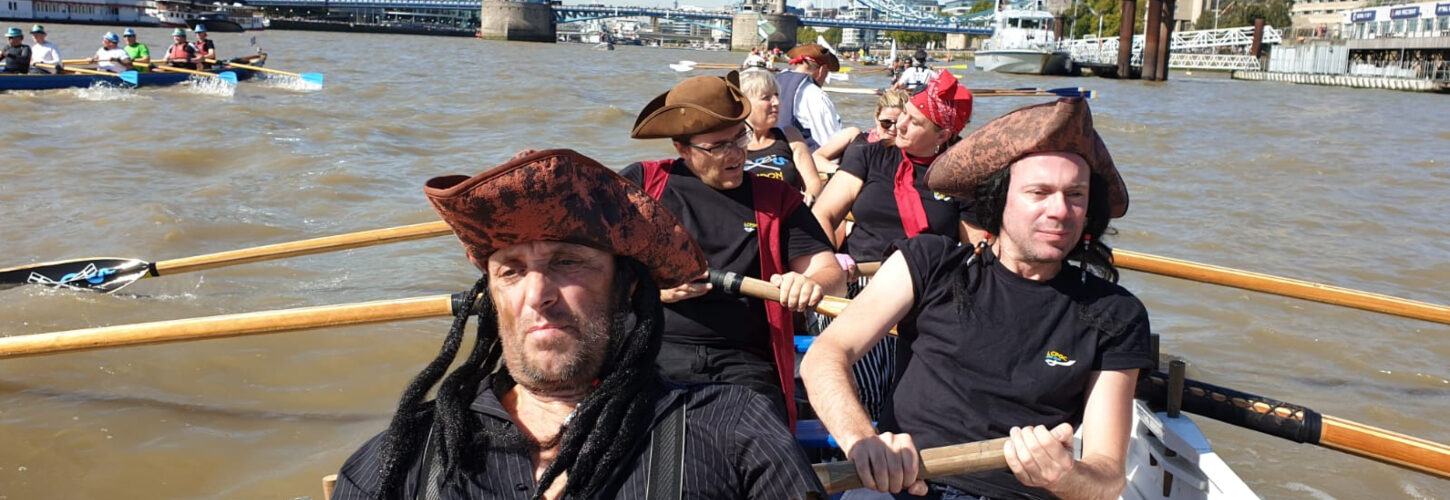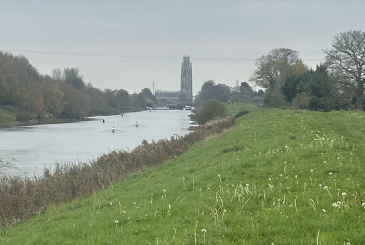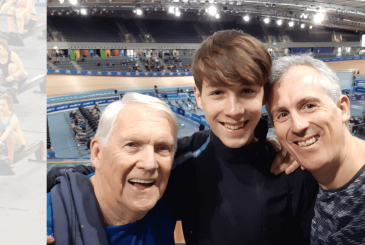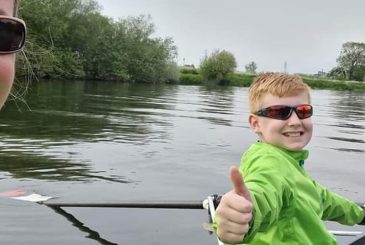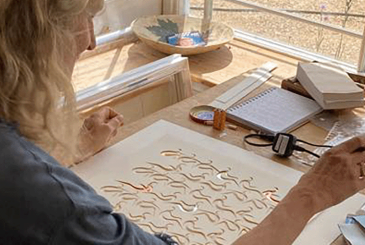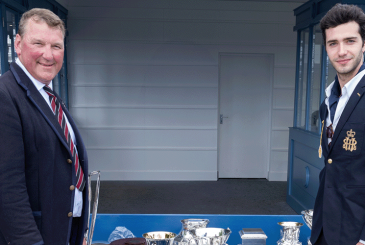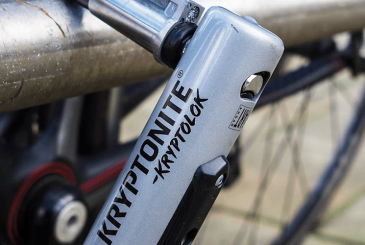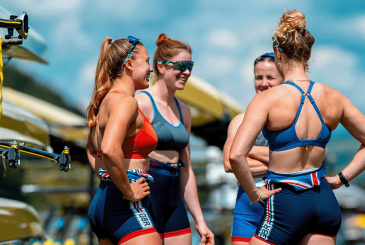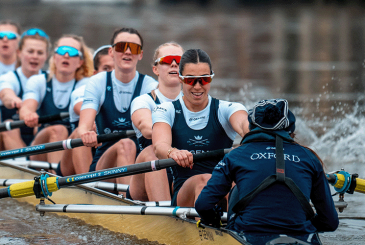Continuing our key worker series, gig rower Maggie Fielder takes time out to tell Caroline Roberts about her year…
Gig rower Maggie Fielder is a homeless health clinical nurse specialist supporting those who live on London’s streets. Pictured below, Maggie tells us about the vital role she has played during the pandemic.
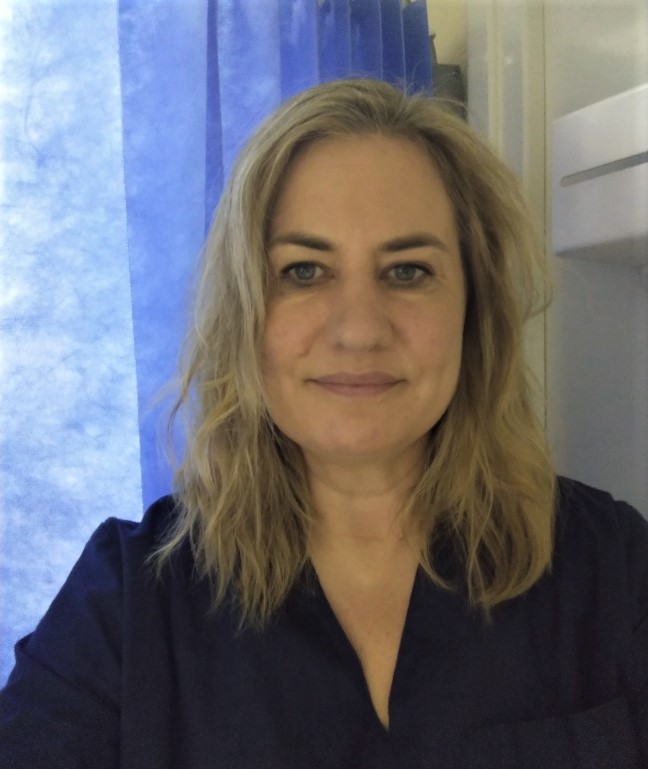
Before Covid hit, Maggie Fielder was part of a small team running a drop-in health centre for homeless people in Westminster. But when the ‘Everyone In’ programme, the government’s plan to house all rough sleeping in hotels during lockdown, was launched in March, the job changed overnight.
“We got the call to go through lists provided by day centres, charities and outreach services and say who needed to be prioritised to go into hotel accommodation.
“Then we had to choose which hotel was suitable by assessing their medical history and screening for Covid,” she explains. “It was a massive job.
“We had pregnant women, patients with diabetes, someone who’d absconded from a nursing home, and those who were mentally unwell, or withdrawing from drugs and alcohol as they could no longer get money through begging.”
With support from local charities and other services, the team ended up overseeing 30 hotels in north-west London and assessing more than 1,500 people.
“Seeing the change in rough sleepers’ lives has been immensely rewarding”
“It was a bit like a field hospital,” she says. “I started writing everything up on a whiteboard so I could see it all and didn’t need to keep it in my brain.”
During the height of the crisis, they were working up to 14 hours, six days a week, and were on call 24/7. “On the first night, I got a call saying a group of patients had been dropped off at the wrong place, so I had to throw on my gig rowing jumper over my pyjamas and drive them to the right hotel.”
But seeing the change in rough sleepers’ lives has been immensely rewarding, she says. “We all had a crash course in addictions and prescribing opiate replacement therapy, and every single person we offered this to said, ‘Yes, I’d like to come off drugs. Now I’m in this hotel with food available and I don’t need to go out, I think that’s achievable’. We were also addressing medical needs that they’d never been able to address before, such as getting someone onto HIV medication.”
“I do think we’re going to see a rise in homelessness in the next few months”
The team has now managed to move many of the patients into housing, and the programme has been one of the positives that’s come out of the pandemic.
“I think we’ve highlighted that if you do get everyone in and they’re in a safe space, they’re willing to address those addictions and health problems that are low priority when you’re in survival mode and you just need to get through the night and not be scared.”
Currently, things are calmer and she’s back to more normal working hours.
“We don’t have so many patients, but my workload has changed as we’ve been left with the most entrenched and complex cases,” she says.
“What we’re seeing now is new patients on the streets, such as those who’ve been in exploitative relationships. I have a lady who worked for a family looking after children for a very low wage, but the parents are at home now, so she’s not needed any more. She doesn’t have any rights in this country so she’s sleeping on buses.
“I’ve always said that rowing really helps me stay sane”
“Unfortunately, I do think we’re going to see a rise in homelessness in the next few months, especially when the furlough scheme comes to an end. It’s really important to get people engaged quickly and move them on, so that homelessness is just a short episode in their lives.”
Throughout the main lockdown, Maggie was working too hard to think much about rowing but when things started up again, she was one of the first back in the boat.
“I’ve always said that rowing really helps me stay sane. It just makes me feel alive and forget about everything that’s happened at work.”
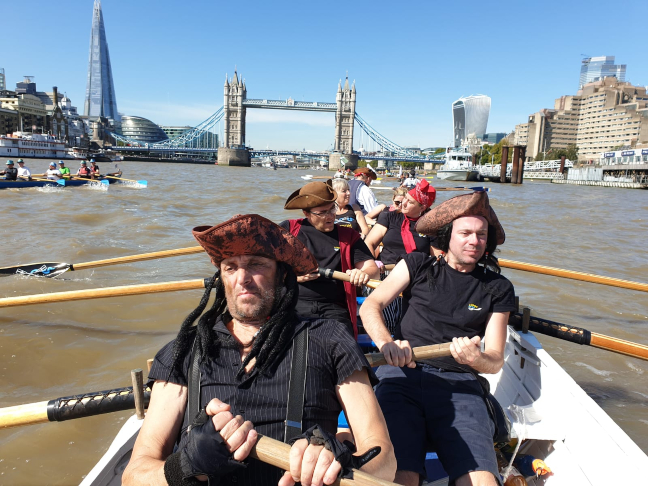
She took part in gig rowing as a teenager growing up in Cornwall and, when she moved to the capital two years ago, one of the first things she did was to join London Cornish Pilot Gig Club.
“When I walked in it was like being at home in Cornwall. Rowing helps me cope with my job much better and it gives me the headspace I need, a massively supportive community, an incentive to keep fit and spend time outdoors, and lots of laughs.”
Taking part in the Great River Race, London’s river marathon, in 2019 has been one of her highlights with the club, along with captaining the ladies’ vets B squad at the World Pilot Gig Championships on the Isles of Scilly.
“I just remember looking round at all the boats on the start line and thinking, wow! I didn’t expect to be captaining in my first year at the club, but they like to give everyone a share of the responsibility and make them feel included.
“I think that’s what gig rowing is all about.”
Look out for more stories from key workers in the rowing community on British Rowing Plus over the next few days


